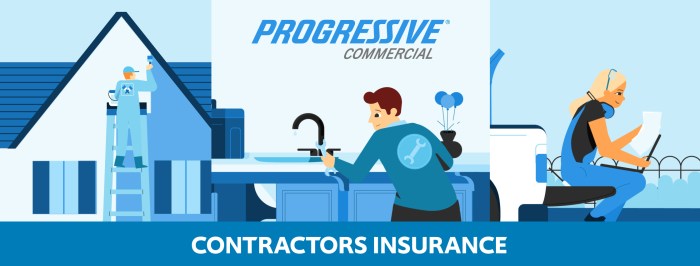Exploring primary care physicians for family healthcare, this introductory paragraph aims to provide a comprehensive overview of the topic, highlighting the importance of accessible and continuous healthcare for families.

Delving further into the qualifications, skills, services offered, and challenges faced by primary care physicians in managing family health.
Importance of Primary Care Physicians for Family Healthcare
Primary care physicians play a crucial role in managing the overall health and well-being of families. They serve as the first point of contact for individuals seeking medical care and are responsible for coordinating various aspects of their healthcare needs.
Benefits of Having a Primary Care Physician for a Family
- Personalized Care: Primary care physicians develop a deep understanding of their patients' medical history, preferences, and needs, allowing them to provide personalized care tailored to each family member.
- Preventive Services: Primary care physicians focus on preventive care, such as routine screenings, vaccinations, and health education, to help families maintain good health and detect any potential issues early on.
- Coordination of Care: Primary care physicians serve as the central hub for managing various aspects of a family's healthcare, including referrals to specialists, follow-up care, and monitoring of chronic conditions.
Significance of Continuity of Care Provided by Primary Care Physicians
Continuity of care refers to the ongoing relationship between a patient and their primary care physician, which leads to better health outcomes and overall satisfaction. Benefits of continuity of care include:
- Improved Communication: Having a consistent primary care physician fosters open communication and trust between the patient and the healthcare provider.
- Consistent Monitoring: Primary care physicians can track changes in a family's health over time, detect patterns, and intervene early to prevent or manage health issues effectively.
- Comprehensive Care: By knowing the family's medical history and background, primary care physicians can provide more comprehensive and holistic care that takes into account all aspects of their health and well-being.
Qualifications and Skills of Primary Care Physicians
Primary care physicians play a crucial role in providing comprehensive healthcare to individuals and families. To become a primary care physician, one must meet specific educational requirements and possess essential skills to effectively care for patients of all ages. Let's explore the qualifications and skills needed for primary care physicians.
Educational Requirements
In order to become a primary care physician, individuals must complete the following educational requirements:
- Obtain a Bachelor's degree from an accredited institution
- Complete medical school and earn a Doctor of Medicine (MD) or Doctor of Osteopathic Medicine (DO) degree
- Pass the United States Medical Licensing Examination (USMLE) or the Comprehensive Osteopathic Medical Licensing Examination (COMLEX-USA)
- Complete a residency program in Family Medicine, Internal Medicine, or Pediatrics
- Obtain a state medical license to practice
Essential Skills
Primary care physicians should possess the following essential skills to provide high-quality care to their patients:
- Strong communication skills to effectively interact with patients and their families
- Problem-solving abilities to diagnose and treat a wide range of medical conditions
- Empathy and compassion to understand and address patients' concerns and emotions
- Collaborative skills to work with other healthcare professionals for comprehensive patient care
- Critical thinking skills to make informed decisions and prioritize patient needs
Comparison with Specialists
While specialists focus on a specific area of medicine and undergo additional training in their chosen field, primary care physicians are trained to provide comprehensive care to patients of all ages. Specialists typically require more extensive training in a particular area of medicine, while primary care physicians are equipped to manage a wide range of medical conditions and coordinate care for patients with multiple health issues.
Services Offered by Primary Care Physicians
Primary care physicians play a crucial role in providing comprehensive healthcare services for families
. They offer a wide range of services to promote overall well-being and manage various health conditions.
Preventive Care Measures
Primary care physicians focus on preventive care to help patients maintain good health and prevent illnesses. They offer services such as routine check-ups, vaccinations, screenings for various health conditions, and counseling on healthy lifestyle habits. By emphasizing preventive care, primary care physicians can detect and address potential health issues early on, leading to better outcomes for patients.
Coordination of Care for Family Members
Primary care physicians serve as the central point of contact for coordinating care for family members with multiple health conditions. They work closely with specialists, therapists, and other healthcare providers to ensure that all aspects of a patient's health are being managed effectively.
By overseeing the care of family members with complex health needs, primary care physicians help streamline treatment plans, minimize duplication of services, and improve overall health outcomes for their patients.
Challenges Faced by Primary Care Physicians in Family Healthcare
Primary care physicians in family healthcare encounter various challenges that impact the quality of care they can provide to their patients. These challenges can range from managing complex medical conditions to dealing with increasing patient loads and staying up-to-date with advancements in medical technology.
Impact of Increasing Patient Loads
Primary care physicians often face overwhelming patient loads, leading to limited time for each patient. This can result in rushed appointments, decreased quality of care, and potential medical errors. The increasing demand for primary care services coupled with a shortage of primary care physicians exacerbates this issue, making it difficult for physicians to provide comprehensive care to all their patients.
Importance of Technology in Overcoming Challenges
Technology plays a vital role in helping primary care physicians overcome challenges in family healthcare. Electronic health records (EHRs) streamline patient information management, improve communication among healthcare providers, and enhance patient safety. Telemedicine enables physicians to provide care remotely, expanding access to healthcare services for patients in rural or underserved areas.
Additionally, medical devices and diagnostic tools help primary care physicians make accurate diagnoses and develop appropriate treatment plans for their patients.
Closing Notes
In conclusion, primary care physicians play a crucial role in ensuring the well-being of families by offering personalized care and support.
Expert Answers
What educational requirements are needed to become a primary care physician?
Primary care physicians typically need to complete a bachelor's degree, followed by medical school and a residency program in family medicine or internal medicine.
How do primary care physicians coordinate care for family members with multiple health conditions?
Primary care physicians often act as the central point of contact, coordinating appointments, treatments, and referrals to specialists to ensure comprehensive care for family members with multiple health conditions.
What benefits are there in having a primary care physician for a family?
Having a primary care physician provides continuity of care, personalized treatment plans, preventive care services, and a trusted healthcare advisor for the entire family.
 Delving further into the qualifications, skills, services offered, and challenges faced by primary care physicians in managing family health.
Delving further into the qualifications, skills, services offered, and challenges faced by primary care physicians in managing family health.









